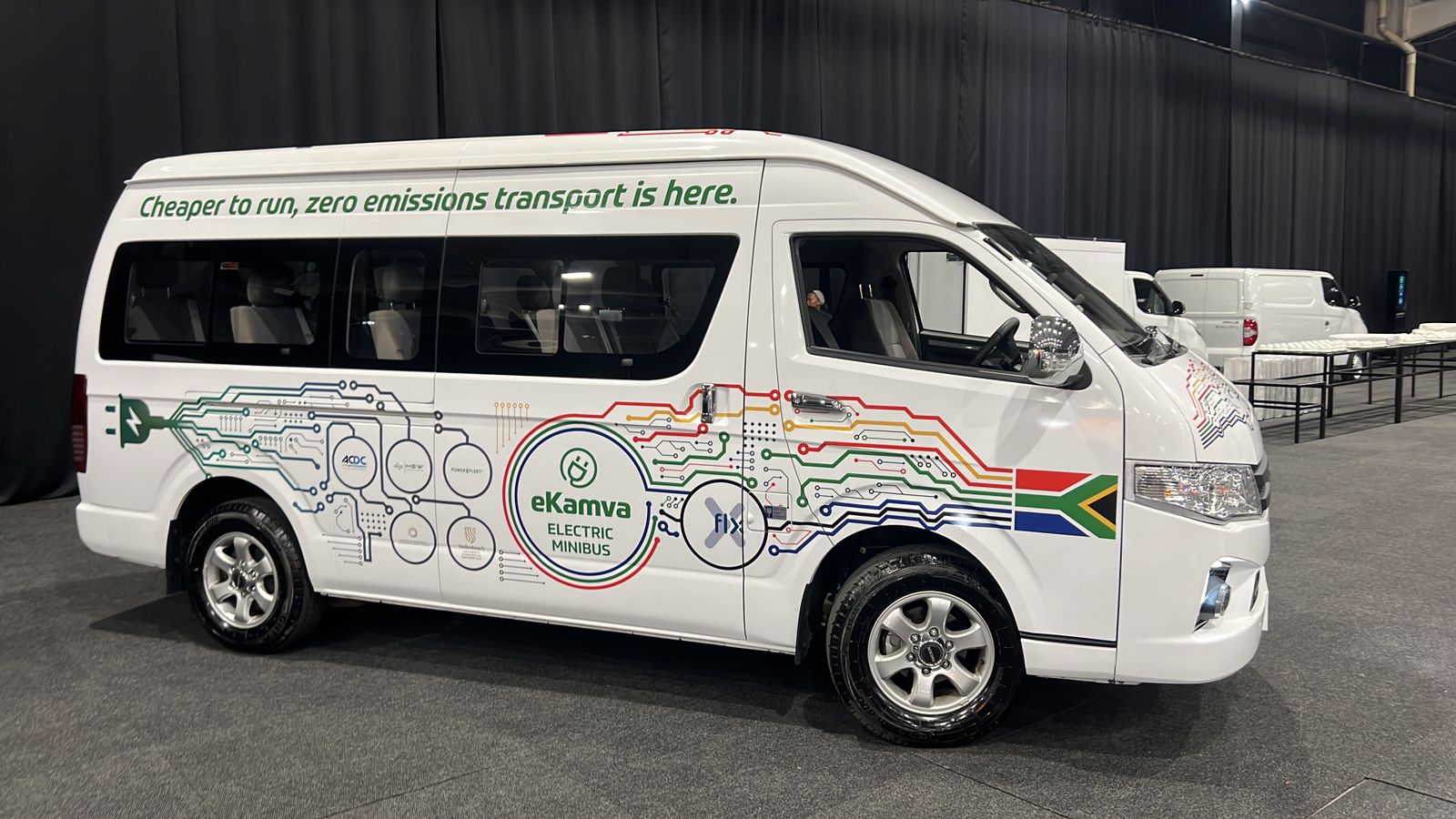South Africa’s first electric minibus taxi, eKamva, was unveiled at the Smarter Mobility Africa Summit in Johannesburg today.
It was launched alongside an integrated electric vehicle (EV) business model and charging infrastructure called ‘flx EV’.
The prototype electric minibus is a project by GoMetro, Powerfleet, formerly MiX Telematics, alongside electronics manufacturer HSW, ACDC Dynamics’ charging network, and Stellenbosch University’s Faculty of Engineering.
The 15-seater electric minibus has a 70kWh battery capable of a 200km range for commutes; and 80% of its battery recharges within 45 minutes from its 50kW DC charging support.
Justin Coetzee, CEO of GoMetro, tells FORBES AFRICA that the journey started two years ago, when the world started going electric. “We asked ourselves, why isn’t there an electric minibus?”
Loading...
Most electric buses available were 9m in length, so after a challenging search across Europe and China, GoMetro eventually found a Chinese model that could be turned into a South African-specific minibus.
“If we’re going to electrify the minibus sector, we’re going to have to do it ourselves. This is a proudly South African project alongside our industrial partnerships,” says Coetzee.
The flx EV website will soon allow minibus taxi owners and operators to apply to be added to the waiting list, while the flx app will let owners manage fleets, monitor vehicle status, prepay for charging, and find its nearest charging hub.
GoMetro will be taking eKamva on a roadshow later this year, targeting taxi ranks, associations, and hubs in South Africa’s Western Cape.
“That to me is the highlight – the industry is at the start of the journey with us, so we have to make sure that whatever they want out of an electric taxi, we listen,” adds Coetzee.
GoMetro plans to build a hub at the Century City taxi rank in Cape Town, and Stellenbosch, and hopes to have its first 10 to 20 electric taxis operating by the second half of 2025.
“There’s a huge market of private sector van usage for people movement, which goes beyond the taxi industry that we will be addressing, such as staff transport, hotel shuttles etc, but first, we need to get our model right,” says Coetzee.
Rudi Kriel, transport economist and Head of Programme at GoMetro, shares that the eKamva will either be sold outright, through a leasing model or a different type of model, such as purchasing the vehicle but leasing the battery, so the buyer still owns the asset.
“The battery will stay in the vehicle, but the ownership remains with flx EV. You just pay a subscription fee per month to have access to the battery, charging facilities and the like; it’s a model commonly used in Africa,” says Kriel.
GoMetro hopes the taxi industry will adopt the new technology on the electric minibus, which would ultimately improve operations, with its claim of up to 70% lower monthly running costs.
“At the end of the day, the taxi industry are business people, right? If you give them something they can save money on, they will be interested. And that’s the plan here, to save people operating costs, and to improve the environment,” says Kriel.
While no pricing has been confirmed for the eKamva, Coetzee hints at a ballpark figure of between R1 million (approximately $57,730) to R1.5 million ($86,600).
Loading...
